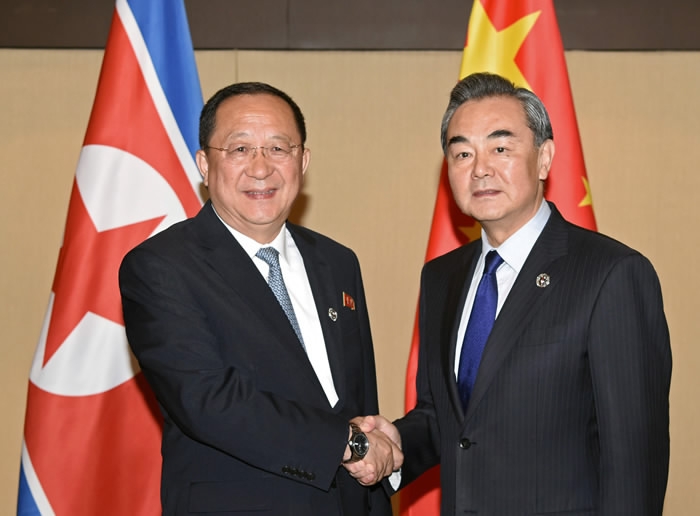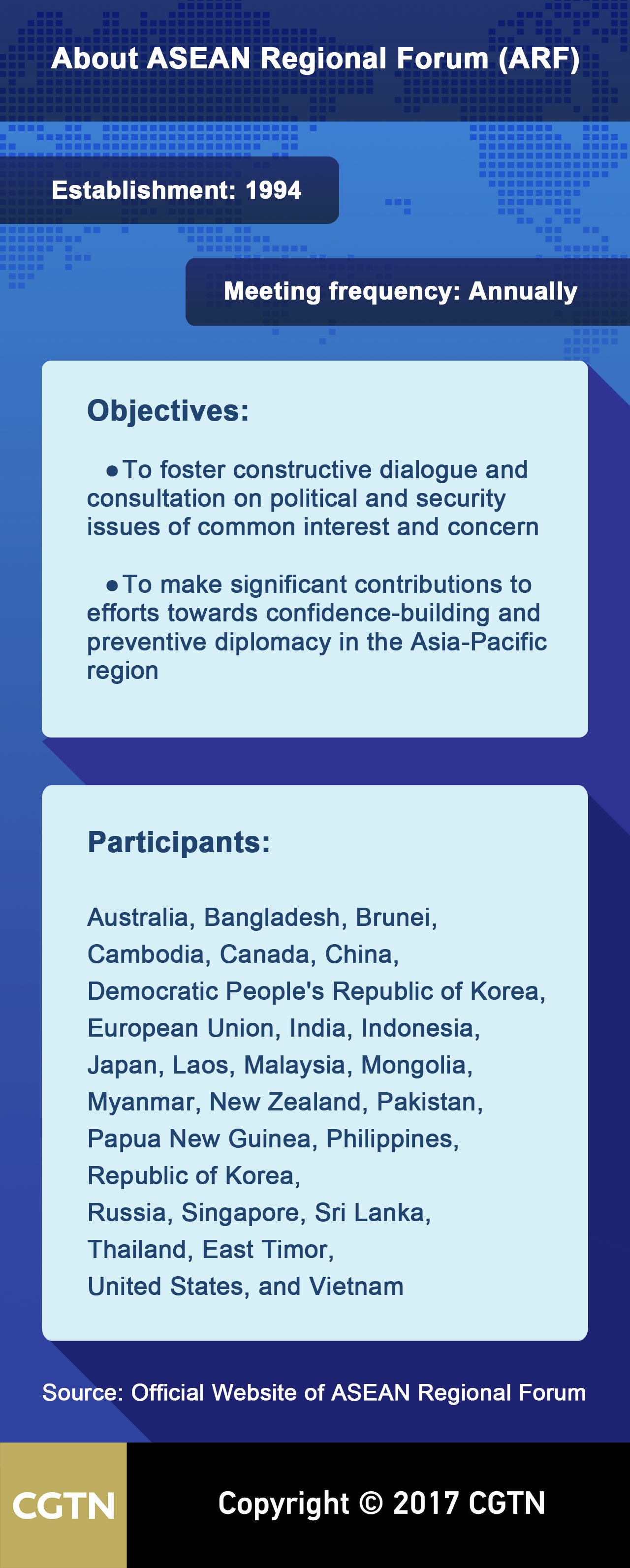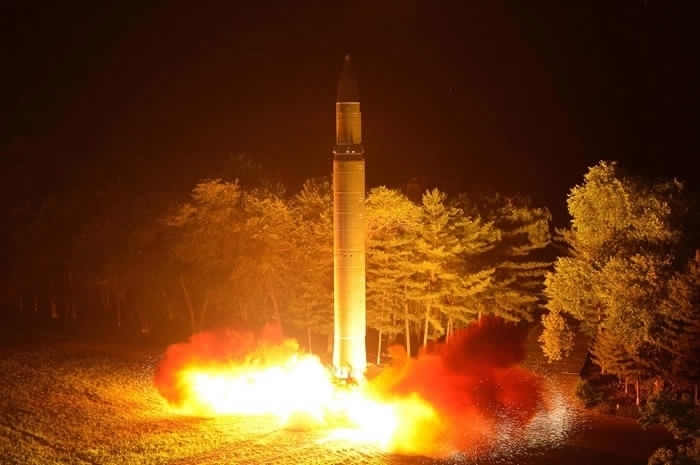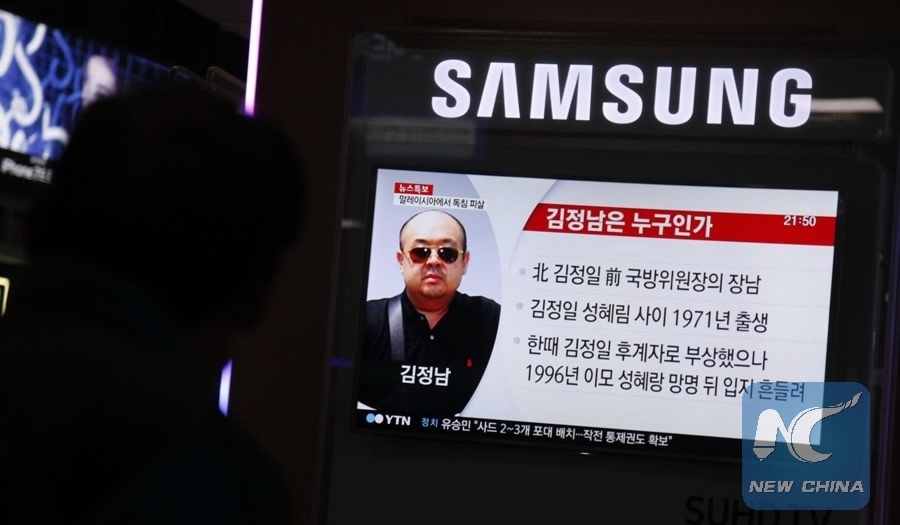The ongoing ASEAN meetings in Manila have provided a rare chance for the DPRK's top diplomat to sit in the same room as his counterparts from countries like South Korea, China and the United States.
Amid heightened regional tensions following the DPRK's two successive Intercontinental Ballistic Missile (ICBM) tests in July, the meetings in Manila are being closely watched, as the world waits to see what sort of role ASEAN can play in the Korean Peninsula nuclear crisis.
As Washington pushes for a diplomatic isolation of Pyongyang, to what extent ASEAN can play mediator in the issue is far from certain, particularly in the wake of a political row between the DPRK and Malaysia over the death of Kim Jong Nam, half-brother of the DPRK leader.

Chinese Foreign Minister Wang Yi (R) greets DPRK Foreign Minister Ri Yong Ho during a bilateral meeting at Manila, Philippines, August 6, 2017. /Xinhua Photo
Only multilateral security forum attended by DPRK
Led by Foreign Minister Ri Yong Ho, a five-member delegation from the DPRK is paying a six-day visit to the Philippines from last Saturday to this Thursday.
On the sidelines of a series of ASEAN foreign ministers' meetings, Ri met with Chinese Foreign Minister Wang Yi and South Korea's top diplomat Kang Kyung-wha on Sunday and Monday morning respectively. But his major agenda in Manila is to attend the ASEAN Regional Forum (ARF) on Monday afternoon.
The DPRK joined the ARF in 2000. In fact, the ARF, which comprises 27 members, is the only multilateral security forum with the DPRK as a member.
Foreign ministers of all countries in the Six-Party Talks sponsored by China to resolve the Korean Peninsula nuclear issue - namely the DPRK, South Korea, the US, China, Japan and Russia - will sit in the same room for the meeting.

CGTN Graphic
Former ASEAN Secretary General Surin Pitsuwan urged the group earlier this year to enhance the role of the ARF to help resolve the crisis.
"The ARF should take on bigger tasks and more critical issues, not just sit together and discuss natural disasters. It should face up to issues, and confront problems critical for the region," he told a meeting of Asia News Network editors in Bangkok.
Lonny Carlile, associate professor at the University of Hawaii's Asian Studies Program, shares a similar view. He noted that ASEAN is in "a better position to be a facilitator" in the issue because the region is not close to the Korean Peninsula geographically and without vested interest in it, according to a Channel NewsAsia report in May.
Pyongyang "has always said that they want to engage in direct negotiations with the United States and feel included in the international community," Carlile said, suggesting that ASEAN could be an "alternative."

The DPRK tests a Hwasong-14 ICBM, July 29, 2017. /Reuters Photo
Engagement or isolation?
The Donald Trump administration, which is calling for tough sanctions on the DPRK, called for a diplomatic isolation of the country by ASEAN and even a suspension of DPRK's membership in the ARF.
Susan Thornton, US Acting Assistant Secretary for East Asian and Pacific Affairs, said Washington expects a "general chorus of condemnation" of the DPRK's missile launches and "pretty serious diplomatic isolation" directed at the country's foreign minister during the Manila meetings.
The US State Department also indicated that Secretary of State Rex Tillerson "has no plans" to meet Ri in the Philippine capital.
But ASEAN, all members of which have diplomatic relations with the DPRK, said it prefers engagement and dialogue.
The organization wants to engage Pyongyang "in a face-to-face and candid dialogue on what is happening on the Korean Peninsula" so as to "help deescalate the tensions," Philippine Department of Foreign Affairs spokesman Robespierre Bolivar said at a press conference last week, stressing that the ARF does not have expulsion provisions.
"Aside from the UN, the ASEAN Regional Forum is the only venue where you have around the table the DPRK, the Republic of Korea, Japan, China, Russia, the US, the European Union and ASEAN," he stated.

The killing of Kim Jong Un's half-brother Kim Jong Nam in Kuala Lumpur airport in February triggered a diplomatic row between the DPRK and Malaysia. /Xinhua Photo
Yet Denny Roy, a research fellow at Hawaii-based research institute East-West Center, recently questioned ASEAN's capability to mediate in the thorny issue.
"This is a Northeast Asia problem... I don't know what ASEAN can do to make talks more likely but (it) can help to enforce sanctions," he said, adding that "ASEAN by itself has nothing to give" either the US or the DPRK to break the current deadlock.
Related stories:
DPRK: Seoul's offer to improve ties 'lacks sincerity'
Chinese FM presses DPRK to follow UN resolutions on the sidelines of ASEAN meeting










